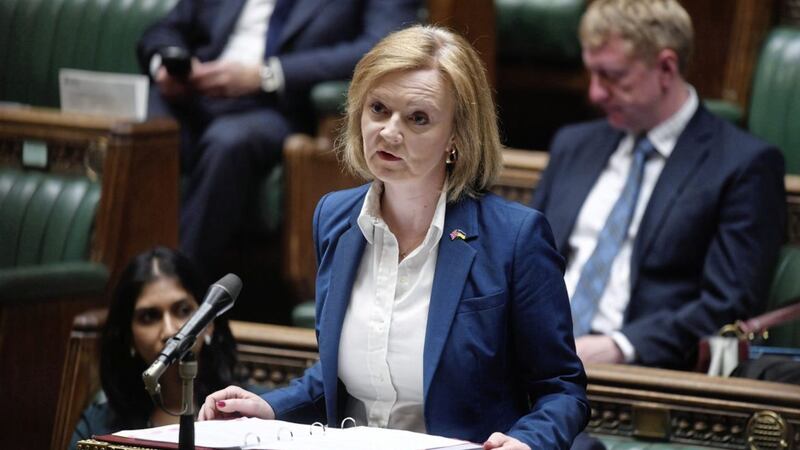The problem with the government’s approach to the protocol is that it is not cynical enough. Passing a law to disapply parts of the deal is too blatant and neat an attempt at a technical resolution.
What had most concerned the EU, even in the pre-protocol days of the proposed backstop, was that the UK would sign up to a special arrangement for Northern Ireland then faux-innocently stall on implementation.
‘Oh dear, we’re doing our best, but we just can’t quite get this thing to work yet,’ the perfidious Brits would say, while time wore on and facts on the ground were established - the most pertinent fact being that that the EU single market is in no danger of being swamped with smuggled goods if Larne has less paperwork than Rotterdam.
Brussels had good reason to fear this approach because by accident or design it has been shown to work. The protocol began in January 2021 with various grace periods, including three months for supermarkets and their suppliers, six months for chilled meats and 12 months for human and veterinary medicine.
Not only did the UK get away with unilaterally extending the grace periods on supermarkets and chilled meat but everyone has already forgotten the huge controversy this caused - nearly as bad as the political and diplomatic stand-off today. The EU denounced the initial extensions as “breaching international law”, yet by July 2021 the government had made these extensions indefinite and the EU had dropped its legal enforcement action. By that September, Brussels was promising to remove 80 per cent of checks, including on all human medicines. In effect, the supposedly immutable sea border unravelled in eight months entirely under the weight of its own impracticality.
It has since become widely accepted the grace periods are permanent. The EU has said the risk to the single market can be managed through real-time data on goods moving into Northern Ireland rather than by physical checks, given the patterns of trade it has observed. In other words, Larne does not have to be like Rotterdam after all.
How much of a premeditated tactic this has been on the UK’s part is unclear, probably even to the UK. The government is divided and disorganised. Sincere efforts to implement swathes of the protocol have certainly been made, by officials if not always by ministers. There is an inclination in Brussels and Dublin to see a Conservative conspiracy and there are undoubtedly Tory hardliners who have always wanted to tear the protocol up. But a lot of these suspicions are paranoia and ignore the success London was having through a much less combative approach.
Attempting a second Internal Market Bill could also be more cock-up than conspiracy. The new legislation is being driven by foreign secretary Liz Truss, reportedly acting against the instincts of Boris Johnson and the wishes of ministers such as Michael Gove and chancellor Rishi Sunak.
Gove was in charge of the original Internal Market Bill, which arose from a long-standing plan to tidy up post-Brexit devolution.
The proposed bill this time is different because its timing and first aim appear to be about getting the DUP back to Stormont.
Truss’s team is briefing she has deeper concerns. The foreign secretary thinks the EU is stalling and her legislation is required as a form of backstop, even if it is never used, in order to concentrate minds and move negotiations on.
Awkwardly, there are signs she has a point. The EU does seem to have improved its offer, amid all its protestations of outrage. At the very least, it has made prominent statements on how flexible it is willing to be, which it may feel more obliged to live up to.
However, Brussels is also clearly antagonised, as are EU member states and Washington - and the EU’s offer was always bound to improve because the protocol as agreed is unworkable, as is now almost universally recognised.
If the government did not have to schedule a face-saving exercise for unionism over the next few months, how much more calmly could it achieve the same outcome by just waiting a little longer?









